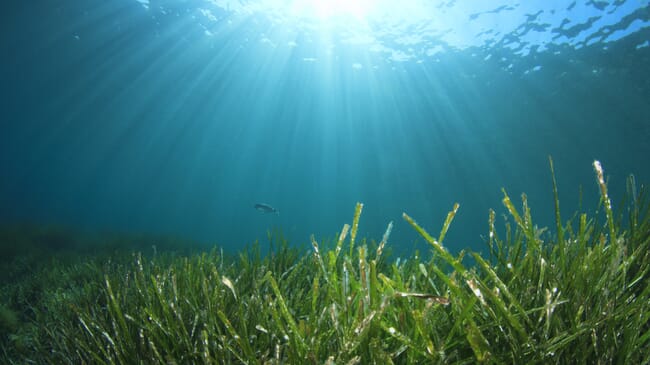The three-year LIFE Recreation ReMEDIES project aims to protect vital seagrass meadows located in Special Areas of Conservation (SACs) around the UK’s south and east coasts. It will provide environmentally friendly moorings, voluntary codes, targeted training and habitat restoration – and hopes to restore eight hectares of beds that have been lost due to the impact of unsustainable water use.

The five project areas set to benefit include Plymouth Sound & Estuaries in the South West, the Solent Maritime, the Isles of Scilly, Fal & Helford. The Ocean Conservation Trust will be cultivating up to 25,000 plants a year in its laboratory at the NMA to restore up to four hectares of lost seagrass meadows in the Plymouth Sound, and work has already started following the first seed collection. The lab is expected to open for public viewing at the end of March and will allow aquarium visitors to see the plant cultivation in action whilst learning more about the importance of seagrass.
Seagrass - of which there are four species in UK waters - is one of the ocean’s most important habitats, providing a nursery ground for many commercial fish stocks and acting as a haven for many marine animals including rare seahorses, stalked jellyfish and rare seaweeds. It also stabilises sediments and prevents coastal erosion, as well as having the capacity to absorb at least as much carbon per hectare as UK forests – making it an important ally in the fight against climate change.
However, seagrass is now considered critically endangered and is an EU Red-Listed habitat due to the damage regularly caused to the slow-growing beds from boaters, walkers and fishermen.
Mark Parry, seagrass expert, said: “At the Ocean Conservation Trust, we’ve been working towards the protection and restoration of vital seagrass meadows for many years, running the Community Seagrass Initiative (CSI) citizen science project which surveyed the condition of seagrass beds along the South Devon coast, and developing the Stirling Advanced Mooring System that will now be a part of this project. With this in mind, it’s exciting to be playing such an important role in the LIFE Recreation ReMEDIES, and we’re delighted to be working collaboratively with Plymouth City Council, the Marine Conservation Society and the Royal Yachting Association and Natural England to do this important work.”



